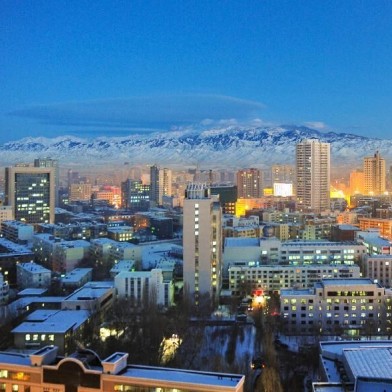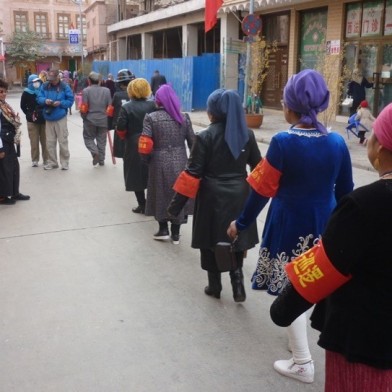All Static & Noise received the Best Picture award in the Crime & Conspiracy category at the 2023 Doc Edge Festival. After its premiere at the Capitol in Auckland on June 1, it will soon hit the screen at the Roxy in Wellington on June 9.
The viewers deeply resonated with the documentary, and it has been hailed by China Change as “masterful and moving” and one of the most crucial works of cinema today.
The movie focuses on the systematic oppression and persecution faced by Uyghur and Kazakh nationals residing in the western region of China.
The Uyghurs, who are primarily Muslim and belong to an ethnic minority, inhabit the Xinjiang Uyghur Autonomous Region, historically known as East Turkistan. The Chinese government has been accused of conducting a wide-ranging campaign of repression against the Uyghur community, attracting significant international attention and condemnation.
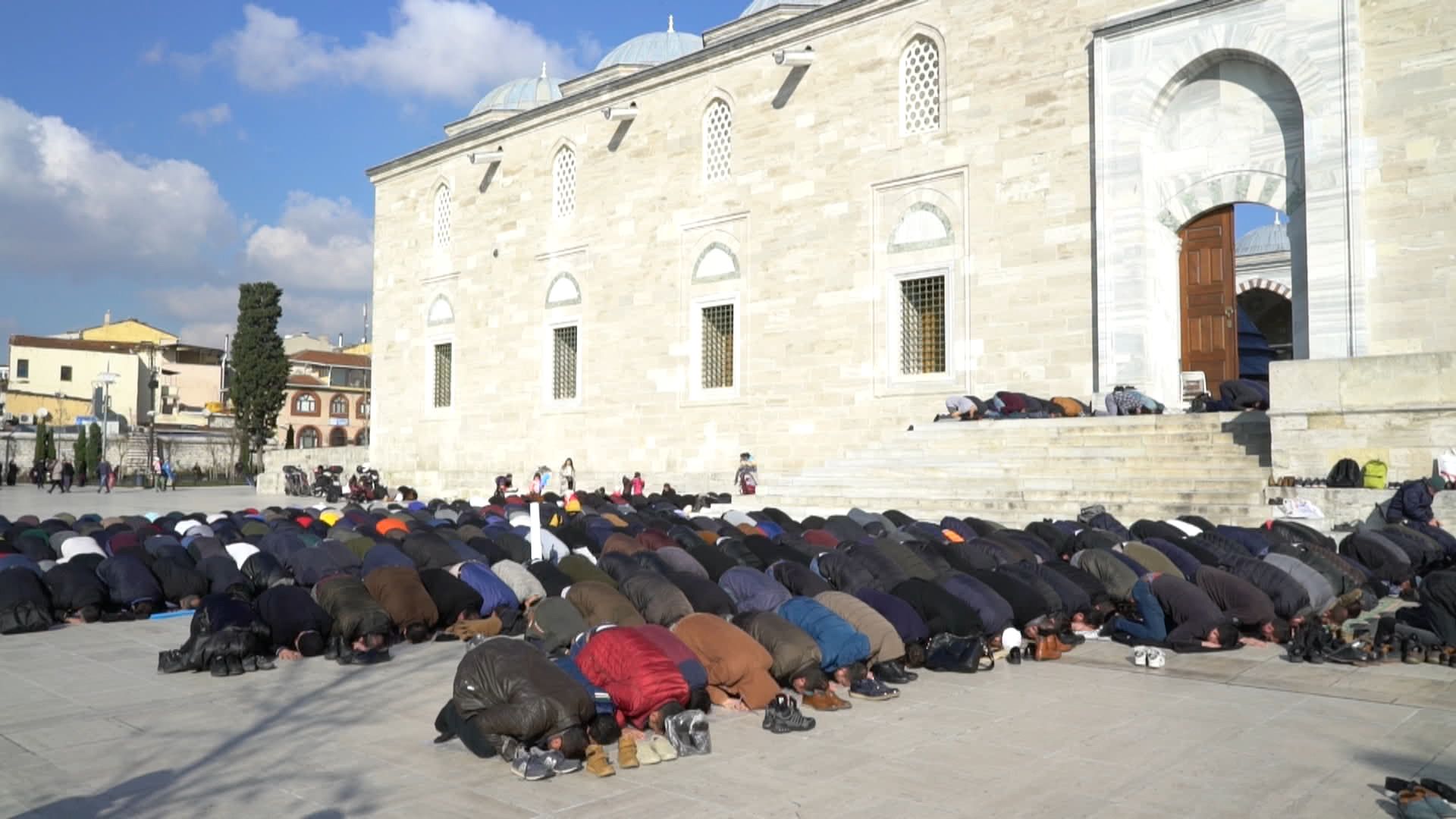
Uyghur community in Turkey, still from the film. Photo supplied.
These grave circumstances compelled producer Janice Englehart to create a film addressing this issue.
In an interview with the Asia Media Centre, Englehart narrated her experience living in China at a time when the human rights violations against Uyghurs occurred. She said, “I was living in Beijing, and I have several Uyghur friends whose parents were taken away… I was bearing witness of everything that’s going around me, and over the years seeing China’s human rights abuse, in this case targeting Uyghurs people, it seems to be an extraordinary higher level of oppression.”
Englehart works in arts and film, and she believes that the story should be told to a wider audience, so that the “western world would understand it.” She contacted her good friend, David Novack, an award-winning filmmaker to join this project.
Novack, the director of All Static & Noise, embraced the project without hesitation, and as he delved deeper into the research, interviews, writing, and directing the documentary, it became increasingly personal to him.
Being of a Jewish descent, Novack shared that his own family had suffered tragic losses amid the Holocaust in the 1930s during the Third Reich. He emphasised the Jewish mantra of “never again.” Which calls for preventing such atrocities from occurring in the future, “never again should this happen, never again! And it’s very important that we apply the idea ‘never again’ to everybody, this really compelled me to take a look at this [project]," he said.
During their journey, the team embarked on travels to various locations worldwide to interview Uyghur survivors and their family members who managed to flee China. However, due to film limitations, they had to select a smaller number of individuals as case studies, which has proven to be a heart-wrenching process.
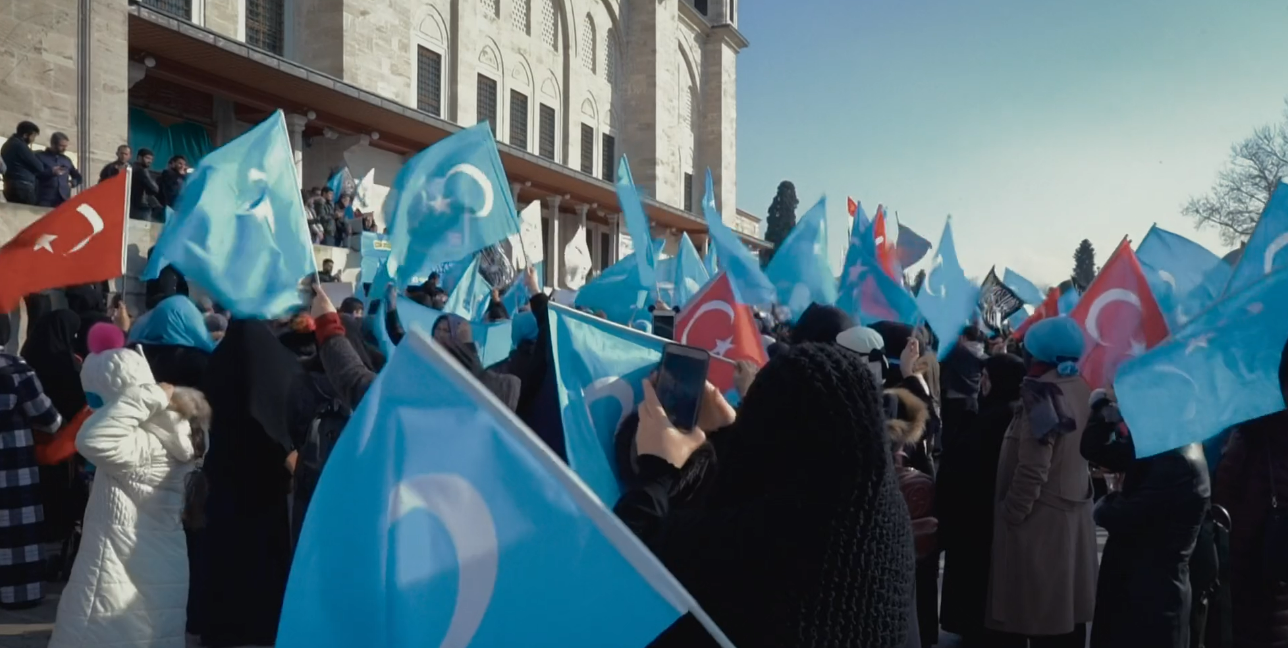
Uyghur community gathered in Turkey waving their ethnic flag, the Kökbayraq. Photo: All Static & Noise
The team aimed to showcase each story as extensively as possible, but Nancy Novack, an Emmy award-winning editor and one of the film's writers, found it challenging to narrow the voices to be featured in the documentary.
She explained, “Because the majority of the story shared a similar trajectory, if somebody who is a Uyghur has left the country and has no contact to anymore with their family, and is trying to find them, that’s one version and there were multiple Uyghurs and Kazakhs who have that story… So, you’ve picked one that represents those 20 versions of the story. However, we choose, either the most articulate or carries emotional weight or there’s a father-son involved like something that exemplifies everybody.”
Abduweli Ayup, one of the prominent case studies in the film, is a Uyghur linguist, poet, and author who was previously incarcerated for political reasons.
The Chinese authorities detained him for his involvement in establishing pre-schools specifically for Uyghur children in Ürümqi and Kashgar. These schools prioritised the teaching of the Uyghur language, which had already been prohibited by the government in primary, middle, and high schools, as well as universities.
Ayup advocated vehemently for the preservation of the Uyghur language and argued that kindergartens were not subject to government restrictions. He saw this as an opportunity for his community to continue learning and practicing their language, especially among the younger generation.
However, it was his belief in the significance of Uyghur language education that ultimately led to his imprisonment.
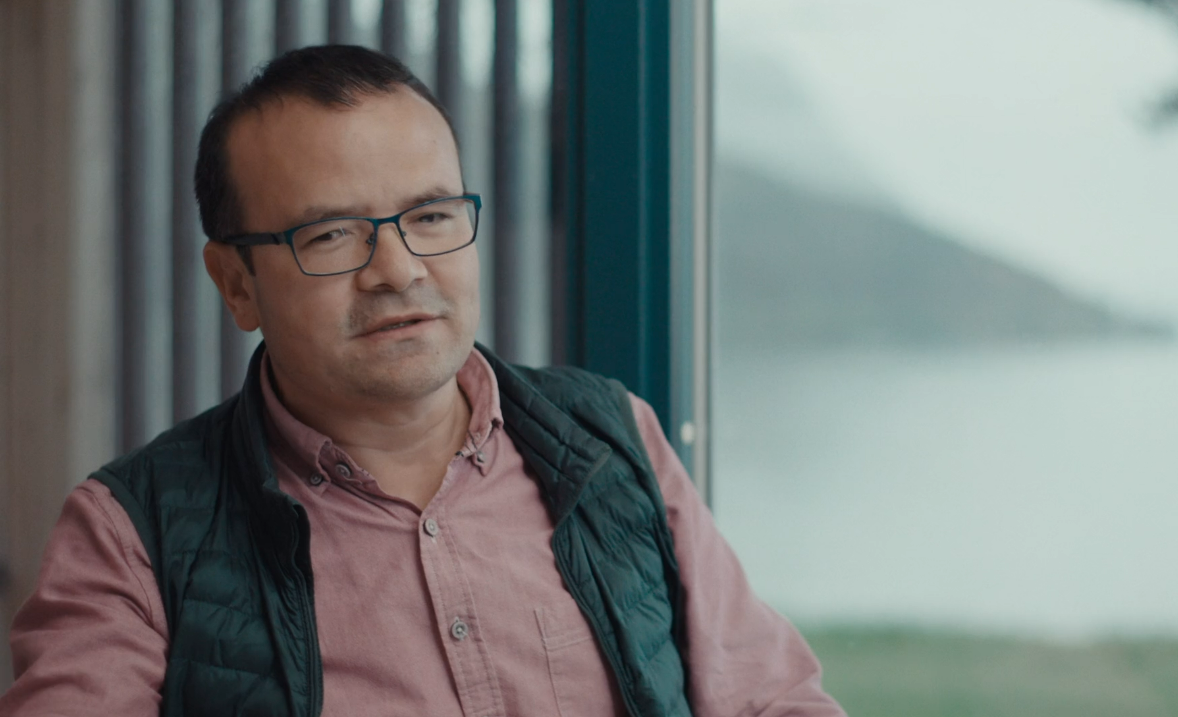
Abduweli Ayup interview in the film. Photo: All Static & Noise
Having endured torture during his time in prison, Abduweli Ayup was finally released in 2014.
In 2015, he and his family managed to escape China and sought asylum in Norway. While this may appear fortunate, Ayup never turned his back on his people. Even while residing overseas, he continued to tirelessly fight for Uyghur rights. He played a crucial role as a translator, assisting the Uyghur community in communicating with the media, lawyers, academics, officials, human rights advocates, and leaders of international organisations.
Ayup's involvement in the documentary All Static & Noise was of great significance. As an insider within the Uyghur community, he earned the trust of his people to share their stories on camera, despite the risks involved. His contributions to the film were invaluable, ensuring that the voices and experiences of the Uyghur people were authentically represented.
The film was over five years in the making, and according to Ayup, it was a challenging task to persuade people to share their stories on camera. He said, “At the beginning it was really hard to convince people especially in 2018. Because people don’t know what will happen and they are not really like confident on what will happen when they speak up because there is no [clear] consequence yet."
Nevertheless, despite the uncertainties, many individuals still chose to speak out during that time because they strongly believed that the situation was unjust. They saw media interviews as a potential means to be reunited with their “missing” or “arrested” family members.
Ayup noted, if they are to undertake the filming project today, it would be extremely difficult to find Uyghurs willing to speak on camera as they are now aware of the consequences and fear has become normalised within the Uyghur community.
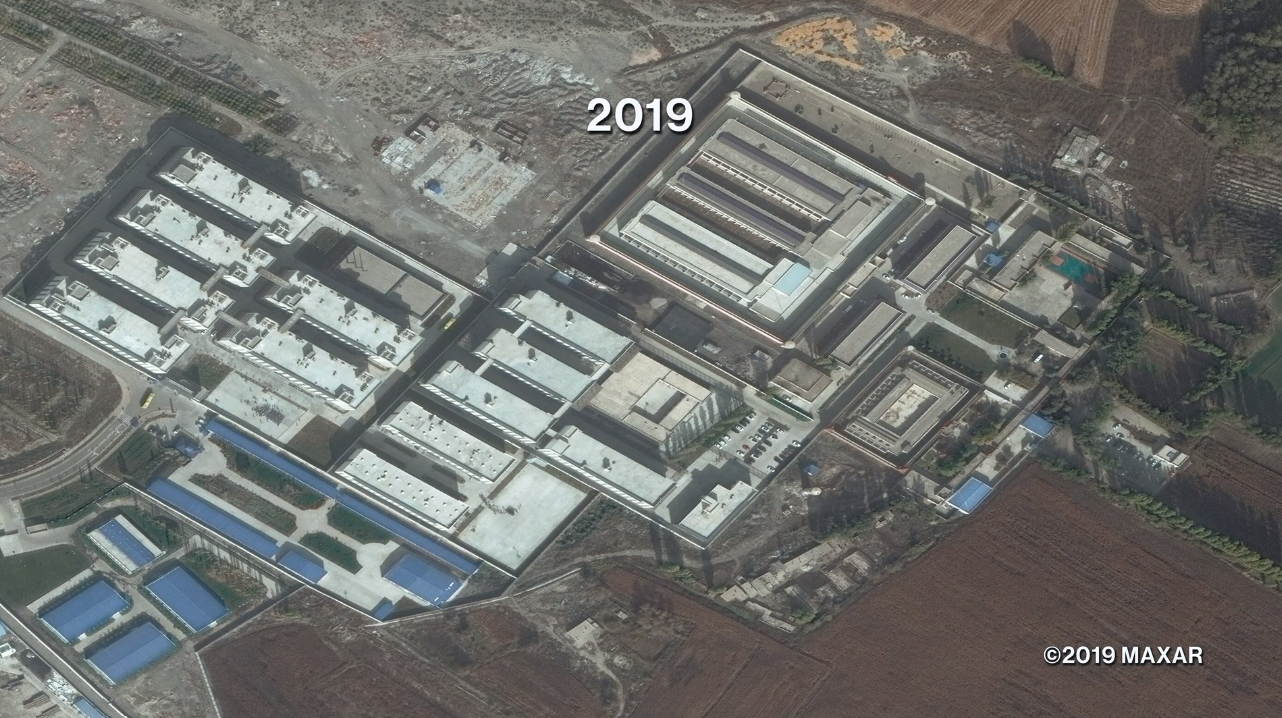
Satellite image of one of the camps in Xinjiang in 2019. Photo: All Static & Noise
The documentary also shed light on the mass internment camps, which the Chinese government claimed to be "re-education" or "vocational training" centres.
Disturbingly, over a million and a half Uyghurs have been forcibly detained in these camps. Once inside, they were subjected to pervasive surveillance and intense political indoctrination.
The film presented case studies of Uyghur and Kazakh nationals who survived the harrowing physical and psychological abuse inflicted upon them within these camps.
The atrocities they endured included beatings, torture in methods known as "tiger chairs" interrogations, forced drugging, and the horrifying sexual assault of women and girls.
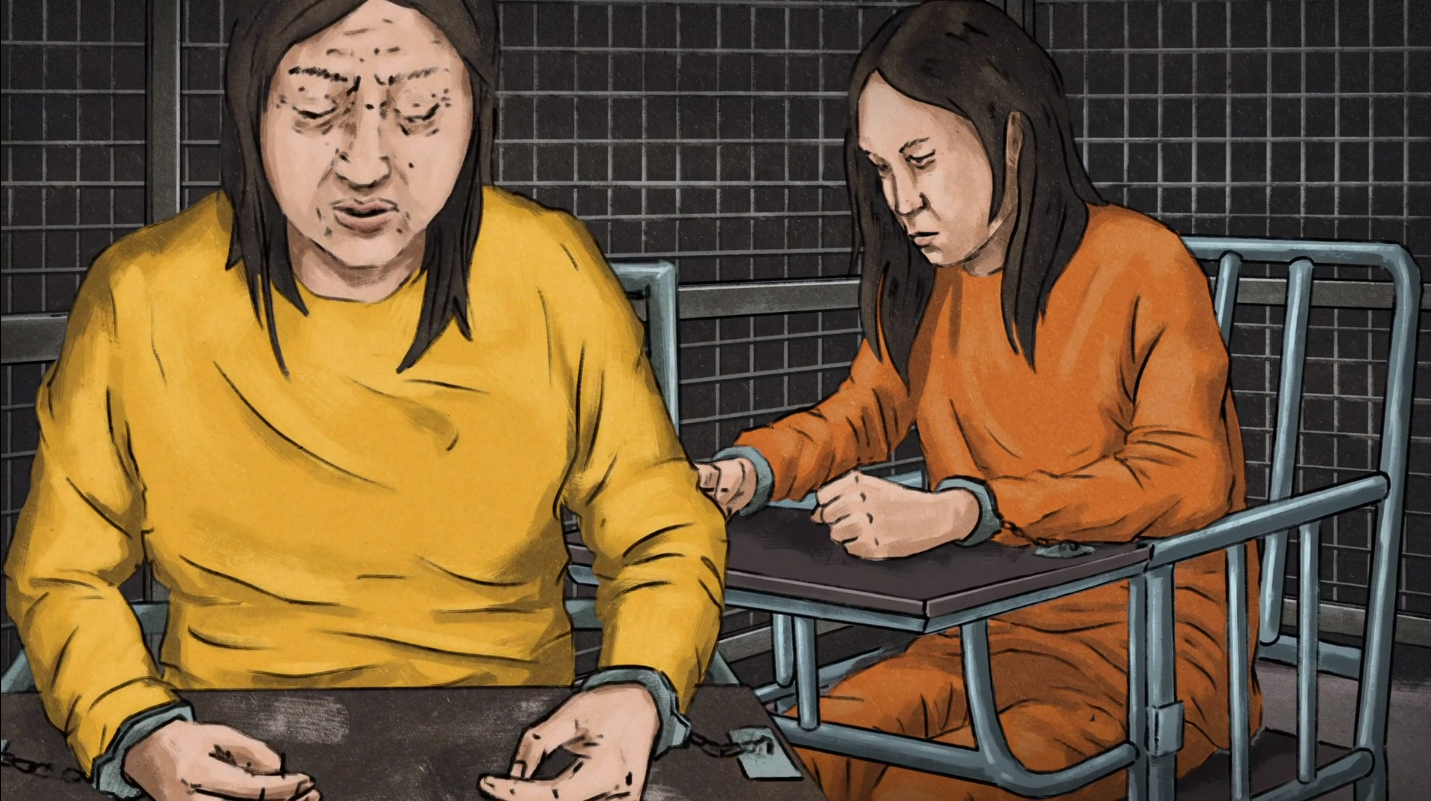
Illustration of the torture the Uyghurs endured in the camp. Photo: All Static & Noise
In addition to compiling firsthand accounts, the production team also obtained satellite imagery of the camps in Xinjiang. They also utilised the leaked classified documents in 2019, such as the China Cables and the Xinjiang Papers.
With the help of seasoned researchers, the team acquired and analysed available Chinese government procurement files that were publicly available. This data allowed them to investigate the government's acquisitions and the flow of equipment to China’s western region. This information provided additional context and evidence in their research and documentation of the situation in Xinjiang.
All Static & Noise can also be streamed online, and the team anticipates that it will raise awareness and prompt world leaders to take action against the atrocities being committed against the Uyghur people, pressing China to address their human rights violations.
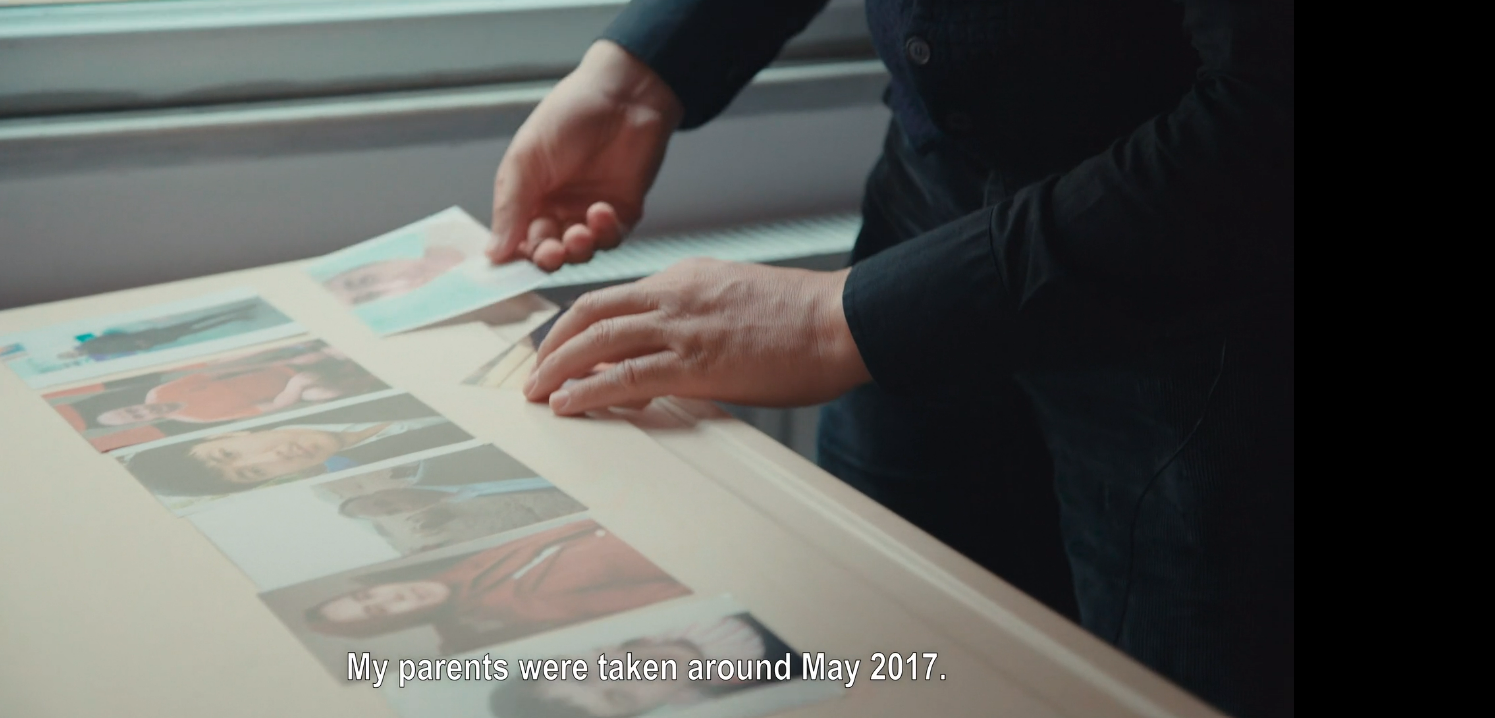
Photos of Uyghurs' missing family members. Photo: All Static & Noise
Nancy Novack expressed, “There’s so many distraction in the world that seems to take precedents over something so tragic and so enormous, and that the world is not standing up and screaming about this is outrageous to me, and if this film gets to enough people, who suddenly stand-up and say, ‘shut-down these camps and release all these people, there should be no concentration camps in the world right now,’ then that would be one of my goals and one of my hopes.”
Despite facing significant challenges, Abduweli Ayup remains hopeful that the situation will improve for the Uyghur community as he stressed, “the Chinese government can destroy our schools and our mosques, but they will never destroy our soul – we are here!”
He believes that the film can serve as a tool to educate the public about the Uyghur struggle and their dire circumstances. As responsible global citizens, he emphasises the power individuals have in helping to stop this monstrosity, particularly by boycotting products made in China that may involve forced labor.
With the documentary currently being showcased in New Zealand, Ayup hopes that it will raise awareness among the country's parliament and encourage them to denounce Beijing's actions as "genocide."
He also hopes that New Zealand will consider granting refugee status to Uyghurs who are living in exile, as many of them are stateless after having their passports cancelled by the Chinese government. Ayup wishes for the New Zealand government to examine their situation and provide them with the opportunity to seek asylum.
Banner image: Footage of Uyghur detainees, shackled and blindfolded, in Korla West Train Station. Photo: All Static & Noise
- Asia Media Centre

